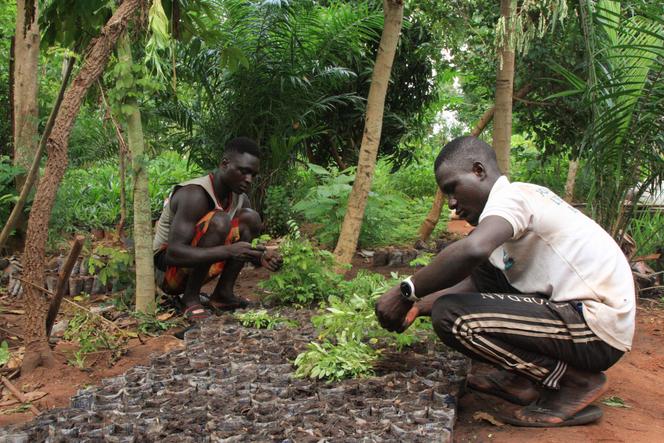


The rules aren't yet fully written, but the race has already begun. And Africa is by no means the last in line to take its share of the pollution rights market set out in the Paris Agreement to give states an additional instrument to reach their greenhouse gas emission reduction targets.
Nine years in the making, the final details of this future market are expected to be adopted at the 29th Conference of the Parties to the United Nations Framework Convention on Climate Change (COP29), which runs until November 22 in Baku (Azerbaijan), but a dozen African countries have already signed contracts with industrialized countries.
Leading the way, Ghana has signed bilateral agreements with five countries: Switzerland, Sweden, Singapore, South Korea and Liechtenstein. Its work with the Swiss Confederation is the most advanced, as several emissions reduction programs have already been implemented and will entitle the country to transfer several million tons of CO2 equivalent to Switzerland.
Examples include rolling out improved cooking stoves in rural areas and rice-growing practices that generate less methane. Switzerland has set itself the target of reducing its greenhouse gas emissions by 50% by 2030. To achieve this, it plans to relocate 10% of the effort to developing countries, financing emissions reductions at a lower cost than if they were achieved at home.
This choice aims to relieve the burden on the transport sector and it is therefore no coincidence that the Swiss government has delegated this task to the KliK Foundation. The foundation manages compensation for Swiss fuel importers and selects eligible projects worldwide.
For its part, Ghana benefits from the sale of these carbon credits as a source of revenue to fund "clean" development and achieve its energy trajectory. The voluntary commitments made by developing countries as part of their nationally determined contribution to the Paris Agreement include several levels of ambition, depending on the volume of international capital they are able to attract.
In the case of Kenya, almost 90% of its 32% reduction target in its CO2 emissions by 2030 compared with the current trajectory is dependent on international financing, corresponding to an investment of $53 billion (€49.9 billion). The sale of carbon credits should go part of the way towards achieving this.
"African governments are showing a definite appetite for carbon markets, as they see them as an alternative financing lever for their transformation. On the other hand, industrialized countries or companies that won't be able to meet their climate targets without resorting to these credit purchases see Africa as a potential source at lower cost," observed Matthieu Wemaëre, an associate researcher at the Institut du Développement Durable et des Relations Internationales (IDDRI) and a lawyer for several countries, including Morocco.
You have 43.97% of this article left to read. The rest is for subscribers only.
